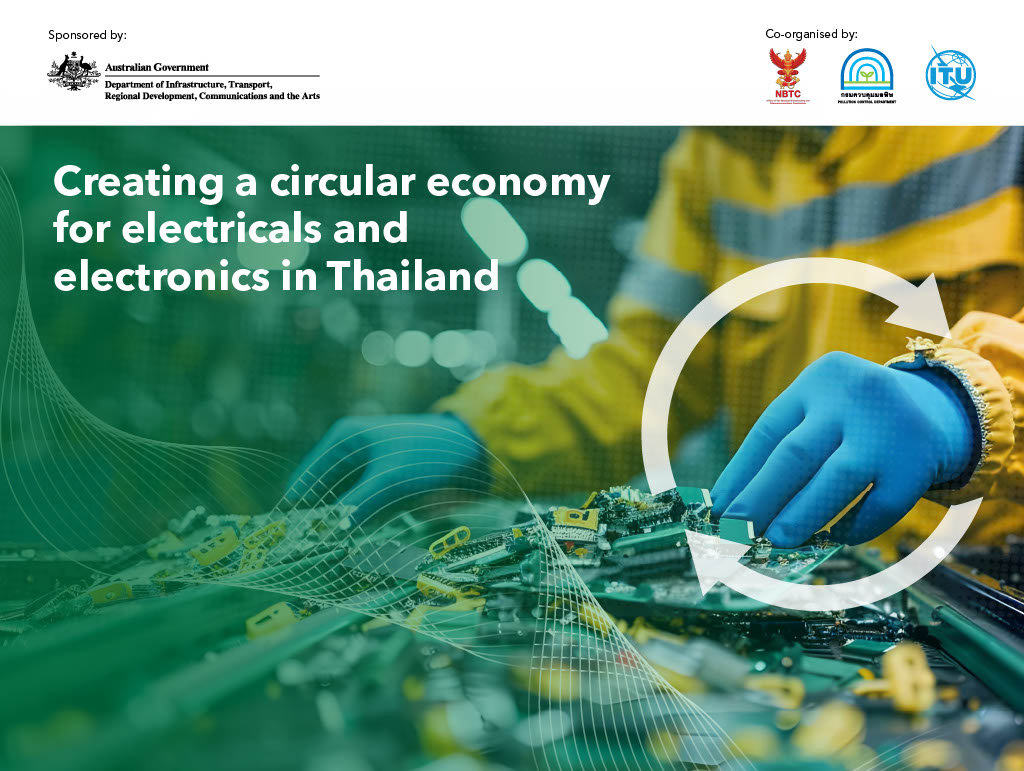
BACKGROUND
The International Telecommunication Union (ITU), the United Nations specialized agency for
information and communication technologies (ICTs), supports a wide range of initiatives,
including e-waste policy development. With the generous contribution from the Government
of Australia - DITRDCA, ITU is undertaking a project titled ‘Creating a Circular Economy for
Electronics and Electricals in Thailand and Mongolia’. The project aims to create sound
recommendations for a regulatory framework for the governance of e-waste management
under extended producer responsibility (EPR) in Thailand and Mongolia.
In Thailand, recent consultations and mapping efforts reveal that 90% of e-waste is mishandled.
Producers collect most of the remaining 10%, while 80% of the generated e-waste could
potentially be recycled. The situation is further complicated by increasing amounts of imported
e-waste in the region. To address these issues, a new law is being developed to extend private
stakeholders' responsibility to cover the end-of-life management of electronic devices.
In this regard, the National Broadcasting and Telecommunications Commission (NBTC) and
the Pollution Control Department (PCD) are receiving technical assistance through the ITU
project to develop a technical proposal with sounds recommendations for a legal regime,
administrative arrangements and financing mechanism for the governance of e-waste
management under EPR in Thailand.
Following a consultation workshop with government stakeholders in August 2024, this Private
Stakeholder Workshop seeks to raise awareness, build capacity, and engage the private sector
in establishing a legally transparent and appropriately financed system for the environmentally
sound management of e-waste in Thailand. This workshop seeks to enhance the private
sector's understanding of e-waste management within the potential EPR framework and aims
to bridge existing gaps through a combination of capacity-building activities and consultation
processes. It will provide a safe space for private stakeholders to contribute their perspectives
on the legal, administrative, and financial aspects of e-waste management in Thailand and to
discuss how they wish to respond to the possibility of regulated EPR.